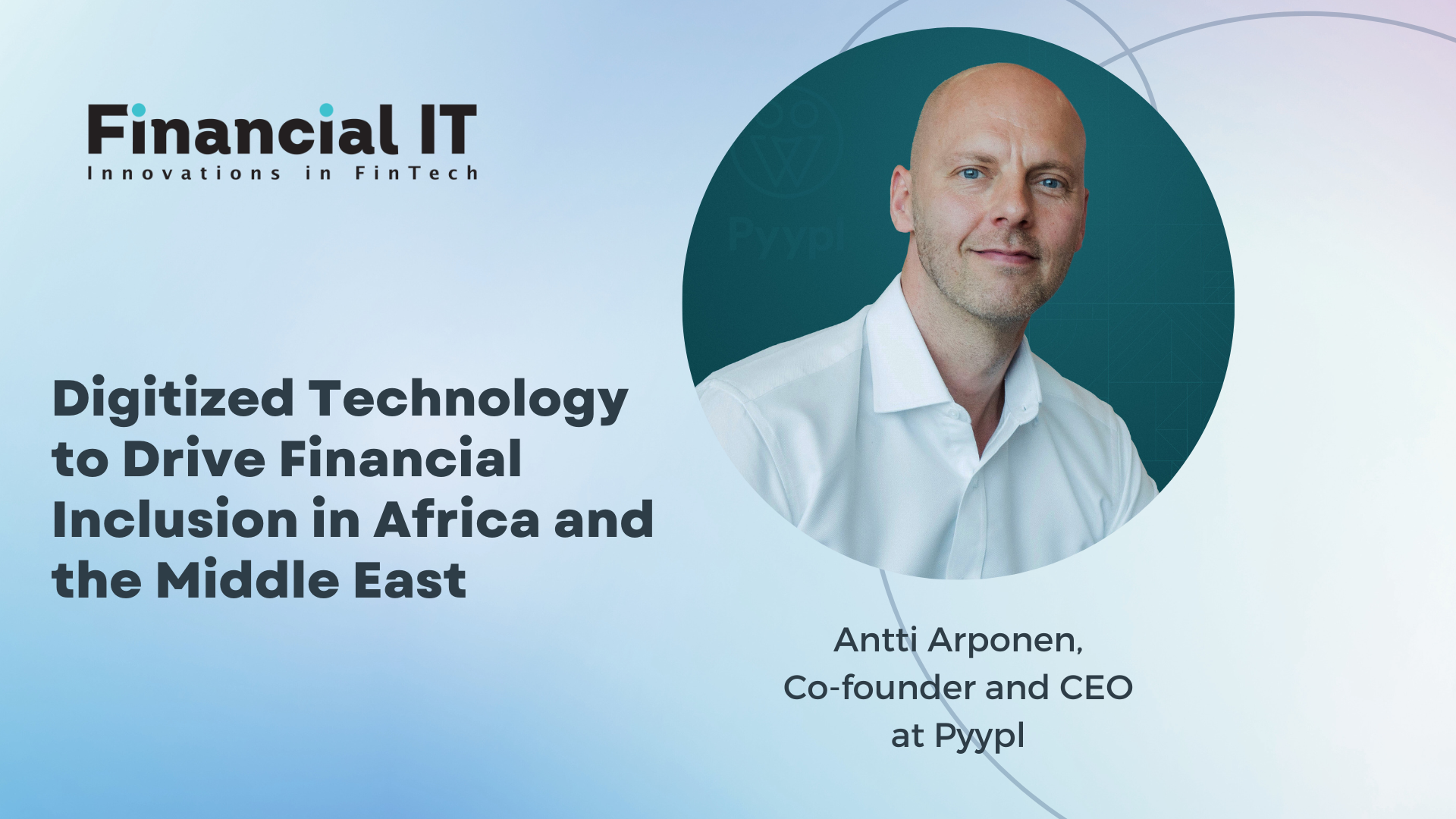Digitised Technology to Drive Financial Inclusion in Africa and the Middle East

- Antti Arponen, Co-founder and CEO at Pyypl
- 15.03.2024 11:45 am #ecommerce #payments #economy
If we consider that in our developing digital world there remain hundreds of millions of digital natives who require better access to essential financial services, providing them with the means to pay and get paid from anywhere in the world would be truly liberating. The transformation would release as yet untapped economic activity while making financial services more equitable and greatly improving access to not only financial services but all other sectors that are underpinned by payments such as e-commerce, health and education, gig-economy services, gaming and more. Now is the time to invest in technologies that unlock an already massive opportunity for digital natives to thrive.
Smartphone as the key to financial inclusion
Smartphones inherently provide for a digitally savvy universe of individuals, many with a professional purpose in a growing middle class. These digital natives leapfrog from an old dial-up landline telephone or even no form of telecommunications straight to a growing majority having a smartphone. It is by using smartphone apps it is possible to enable the alternative payment methods, especially needed in the Middle East and Africa (MEA) region, to meet the growing needs of the digital natives many of whom have a professional type purpose (gig-economy and e-commerce entrepreneurs for example). The smartphone has become the tool to greater access to essential financial services and equitable playing field for income generating opportunities because of technologies with the latest digitised approach to managing data that provide near instant and affordable capabilities.
As mentioned this approach unlocks growth in sectors that provide huge social benefits such as EdTech, HealthTech, AgriTech and access to online services such as shopping, streaming and other subscription services. To the ordinary person in the street that may sound quite futuristic and the plaything of people who already have squillions to speculate with – so how can financial inclusion bridge the gap and provide immediate access to these social benefits? The answer is to boost investment in digitised payment ecosystems that enable rapid scaling of access to all essential financial services and unlocking access to other essential socially beneficial services.
From cashless societies driven by mobile money to global digitised payments and economic access of the future
There has been a wider shift from cash-based to cashless societies through mobile money in emerging markets like Africa.
Cashless society is already here, it just remains to be seen when and to what extent digital natives can not only interact with digital payment locally, which mobile money provides for, but not for cross border payments and e-commerce. The question therefore arises – how can we speed up the arrival of the liberating and transformative benefits so digital natives and pay and get paid from anywhere in the world?
It is the market that’s driving change world-wide by meeting the latent demand for digital payments. The payments sector is ripe for innovation in MEA – and many other regions are already making the transition to digital payments and producing valuable businesses. It is imperative countries across MEA do not stand idly by waiting on being dragged along by the slipstream as others make progress.
With so many digital natives needing better access to essential financial services we have the most to gain and by working with incumbent systems we have an opportunity to progress faster. We just need to recognise the benefits to see that investing in change to create open economic opportunities makes sense.
Tailored solutions for global problems
Digitised technology allows financial innovators to provide specific solutions to the regional problems faced by the digital natives that are underserved, allowing them to develop tailored solutions to a massive and complex global problem. At Pyypl, the technology-based platform that provides digital payments, remittances and a range of other financial services for MEA smartphone users who need better access to payment cards and cross border payment services, we are already seeing rapid adoption and, with over 1 billion smartphone users across the MEA region, achieving financial inclusion is closer in reach than we may imagine.
Examples of how revolutionary digitisation has become include payment cards that do not require a customer to provide bank account or salary details. For instance, Pyypl offers physical cards through plastic or virtual versions through smartphone screens that can be used everywhere – in shops, online and at ATMs – including internationally. There is also a continued momentum and focus on solutions for smartphone users to send cross-border payments, with Pyypl pioneering remittances across to 68 countries and 28 currencies.
To provide some scale to what is now happening in the region, a GSMA report stated 2021 mobile money transactions surged 49 per cent to $13.7 billion in the Middle East and North Africa (MENA), while they jumped 40 per cent to $697.7bn in Sub-Saharan Africa. Among these numbers are many, many people who do not have the traditional forms of banking – they were not financially included. But now the humble smartphone working through digitised data management is able to include them too.
Greater investment capital in these technologies so that financial innovators can roll out these services rapidly across emerging markets is vital to unlocking further growth. Users of this technology do not, of course, need to know the first thing about algorithms, cryptography or Blockchain – all they need is a smartphone or even a smartwatch and to know how to use an app like Pyypl and they will be able to access essential financial services, and open up doors to other forms of social inclusion.



















